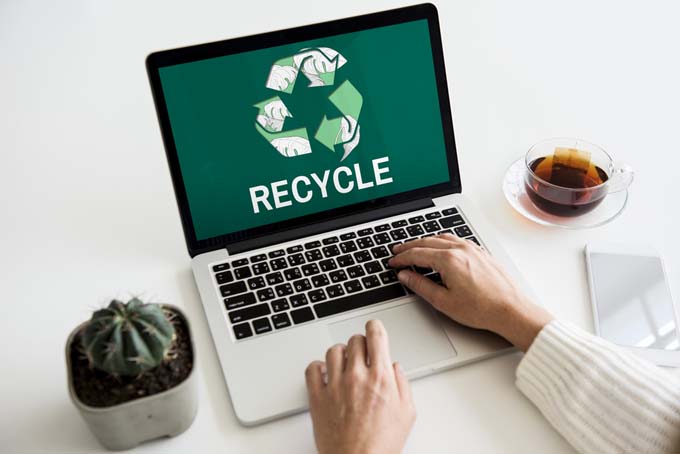Study: Buying behavior is changing - opportunity for sustainable and local brands
Capgemini Research Institute's new study "Consumer Goods and Retail: How Sustainability is Fundamentally Changing Consumer Preferences" shows: Sustainability issues are now influencing the consumer behavior of more than half of the population, with more than half of consumers (52 percent) saying they maintain an emotional attachment to sustainable products or organizations.

The study "Consumer Goods and Retail: How Sustainability is Fundamentally Changing Consumer Preferences" proves: Retailers and manufacturers have now internalized the benefits that sustainability has for their customer relationships: 77 percent say that sustainability leads to greater customer loyalty, while 63 percent confirm that it increases brand sales.
Despite the intention to be sustainable, however, there is a gap between what consumers think they know and what they actually understand about sustainability: 78 percent of consumers are unaware that it takes 1,000 liters of water to make one candy bar and 68 percent do not know that the average burger results in more emissions than a 15-kilometer SUV drive. Nearly 68 percent of consumers who purchased these products were willing to buy a more sustainable product once they understood the sustainability issues.
This means there is a need to provide consumers with more information on sustainability. This finding underscores the importance of brands driving the sustainability agenda.
Knowledge gaps on sustainability among consumers and companies
However, this knowledge gap also exists among retailers and manufacturers who believe their buyers know more than they do. Just over two in three executives (67 percent in Germany, 65 percent internationally) say their consumers know their sustainability initiatives very well. However, one in two consumers (46 percent in Germany, 49 percent internationally) say they have no information to verify product sustainability claims.
Almost half openly say they do not trust the sustainability claims of products (41 percent of Germans, and 44 percent of all respondents). In Switzerland, similar conditions apply as far as the benchmark market is concerned.
Most companies are only scratching the surface when it comes to sustainability
Specialized CPR organizations spend an average of 1.9 percent of their revenue on sustainability initiatives. The average investment is nearly $34 million by value, and they are reluctant to spend more - nearly 80 percent of organizations cite the impact on profit margins or cost overruns as a challenge in scaling sustainability initiatives. For nearly three in four organizations, other issues take priority, according to this study (see end of text).
Three in four (75 percent) of CPR organizations say they have a strategy, as well as the infrastructure and resources, to drive sustainability and circular economy efforts. However, when it comes to implementing effective company-wide initiatives, less than a quarter of organizations have succeeded. The most commonly scaled initiatives are fair labor policies and safe working conditions. Forty-eight percent of companies say they have reached some level in these areas. In contrast, sustainable IT, which is about reducing the carbon footprint of digital processes (e.g., energy efficiency in data centers), is increased by only 18 percent.
Although the pandemic has put a renewed focus on the circular economy, only 18 percent of executives have invested in circular economy initiatives and only 35 percent plan to invest in this area in the next three years.
Pia Heidenmark Cook, Chief Sustainability Officer at Ingka Group, which includes Ikea Germany, says: "I think one challenge that many organizations face is change management. Many organizations are under the impression that sustainability is more expensive. However, they don't realize that initiatives like waste reduction or energy efficiency reduce their operating costs. So I would say the main challenge that stands in the way of sustainability is change management - making the business case for why it makes sense and influencing and inspiring people to understand why it makes a difference."
The complete study is available for download here: https://www.capgemini.com/de-de/news/studie-herz-nachhaltigkeit-gluecklich-verbraucherpraeferenzen-veraendert/
About the study
The report, "Consumer Goods and Retail: How Sustainability is Fundamentally Changing Consumer Preferences," surveyed 7,500 consumers from the U.S., U.K., Sweden, Spain, France, India, Italy, the Netherlands and Germany (11 percent). In addition, 750 companies from the industry were surveyed (Germany: 12 percent), in addition to one-on-one interviews with numerous executives. More details on the methodology are also available in the appendix of the study.









